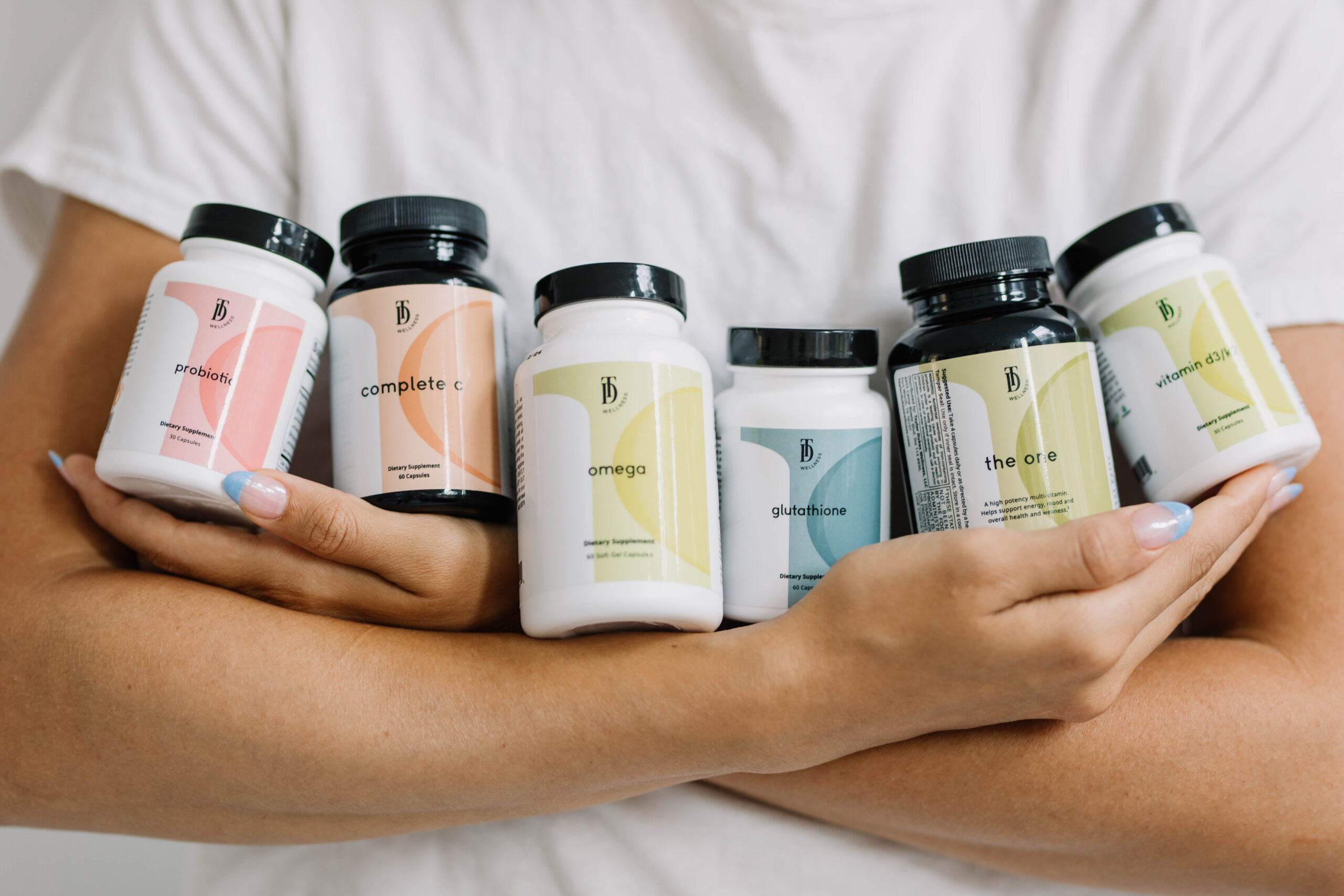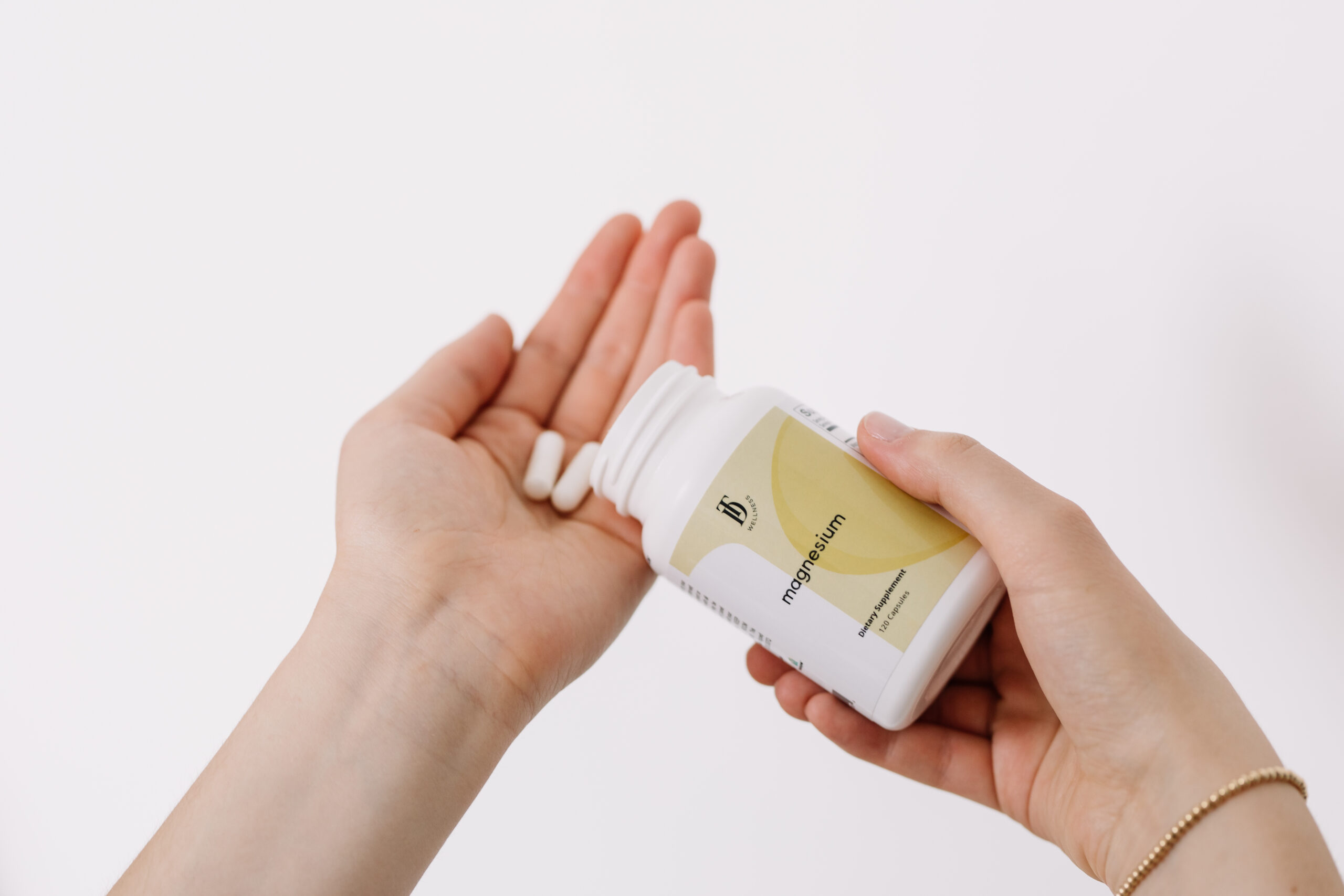All About Water Filters

You’ve probably heard water filtration options mentioned if you’re paying attention to specialists and voices in the health and wellness field, but you might be wondering if it really is necessary to filter your water and what kind of filters are best.
Do I really need to filter my water?
It’s the first and most obvious question we need to address. Maybe you haven’t filtered your water at all up until this point and you feel like “you’re fine” despite it.
Here’s my take on water filtration. First, I’m a huge believer in optimal hydration. I want to encourage you to drink ample water. And let’s be honest, that probably means drinking more than you currently are!
But here’s what else I believe. You might not get sick over drinking less than optimally filtered water today or tomorrow. But over the course of a lifetime, the toxins you absorb via the water you drink (or bathe in!) absolutely add up.
So yes, in my opinion, water filtration is a must whether you’re currently healing, seeking to prevent disease, or simply looking to optimize your health.
It’s important to note that just because certain levels of contaminants in tap water are deemed “legal,” it doesn’t mean they’re actually safe for our bodies to ingest. The Environmental Working Group (EWG) states regarding tap water: “The federal government’s legal limits are not health-protective. The EPA has not set a new tap water standard in almost 20 years, and some standards are more than 40 years old.”
For this reason, the EWG created its own health-protective standards of allowable contaminant levels that may be found in drinking water. You might be shocked to find that many of the levels of contaminants found in your local city tap water are several hundred times higher than what the EWG has deemed to be safe to drink.
What types of things need to be filtered out of our water?
This is where we get down to the nitty gritty on why filtration is necessary. Can I share with you just the short list of chemicals and beyond that are likely found in your tap water?
-
Heavy Metals (Arsenic, Lead, Chromium)
-
Pharmaceuticals
-
Pesticides + Herbicides + Fungicides (Namely, glyphosate aka Roundup)
-
Parasites + Bacteria + Viruses
-
Chlorine + Chloramine
-
Fluoride
-
Nitrates
-
PFOAs and PFAs (plastics)
-
Perchlorate
-
Atrazine
-
Disinfection Byproducts (DBPs)
-
Radioactive elements
The negative effects of these are numerous, but I want to highlight two in particular. Most of the above are known carcinogens and/or endocrine disruptors. Over time, exposure to these compounds can absolutely further the growth of cancerous cells within the body as well as tip hormones out of balance.
Depending on your particular location within the United States (or beyond), you may have more or less of one or another in the list above in your particular tap water.
Great resources for understanding what exactly is in your tap water are:
-
EWG’s Tap Water Database: Simply input your zip code to see the level of contaminants found in your drinking water, as tested and released by local utility companies.
-
National Testing Laboratories, Ltd. gives you access to tap water testing for your specific home! It’s incredibly valuable information to have, especially if you are in the market for choosing a water filter and would like to know which one best suits your needs.
What are some different types of filters?
While there are other technologies, the vast majority of filters you’ll find on the market are either carbon filters or reverse osmosis filters.
Things to consider for carbon filtration:
-
Carbon filters do NOT filter out: arsenic, fluoride, nitrate, perchlorate
-
They differ considerably in quality depending on the size/structure of the carbon filter. This affects the amount, rate, and extent to which they can filter out harmful substances.
Things to consider for reverse osmosis filtration:
-
Minerals need to be added back into the water (either you can add mineral drops or purchase an RO system that has a remineralizing “step” included in the filtration process)
-
While RO systems are the most comprehensive water filtration system, thy produce a significant amount of water waste. Not only is it not ideal to waste water, this can also raise monthly water bills.
A few further notes on other water filtration technologies:
-
Activated Alumina filters remove fluoride, but do NOT add aluminum to water as you may wonder.
-
Ion exchange filters are typically found as a part of a whole house water system. They exchange calcium and magnesium with sodium and are used for water softening and purification. Ion exchange filtration does remove arsenic.
-
Vitamin C filters are primarily used for baths and showers, as they are good at removing chlorine.
-
UV filters are typically part of a more comprehensive filtering system and they’re effective at killing pathogens, viruses, and molds.
What particular filters do you recommend?
The options are endless, and it can feel overwhelming. I want to give you some solid choices for a water filter depending on your budget, permanency, and filtration needs.
AQUASANA
Use code AQTDW50 for 50% Off Whole House and Drinking Systems + Free Shipping on $49+
-
I love the Aquasana OptimH2O Reverse Osmosis + Claryum for under the kitchen sink. It has a built-in re-mineralizing filter, which is so convenient.
-
The easy-install shower filter is a great option for bathing
-
For their whole house systems… I’ll say this – I love them! But for me to recommend a whole-house system, I really could only do that for those who are building their home. It is an absolute beast to install into a home after it’s been built.
RADIANT LIFE
-
Radiant Life is a top-quality company that makes gravity/countertop, under-sink, and whole-house water filtration systems. I would suggest calling the company and speaking to one of their experts before purchasing in order to determine the right fit for you.
CANOPY BATH TUB FILTER
This one’s a no-brainer, especially if you love baths or have little ones who are bathing often. I love it so much! It’s easy-to-install and best at reducing chlorine and irritants for gentler baths. It doubles as a spout cover and temperature indicator, too.
CWR ENVIRO
-
Like Radiant Life, CWR is a top-notch company with high-quality water filtration products (and beyond!). They have a whole line of filtration products depending on your budget, permanency, etc. If you’re considering a water filtration system, they offer great solutions, and I’d suggest speaking with one of their experts before purchasing.
CRYSTAL QUEST BATH FILTER
-
A great option to keep in the bathroom, especially for those who are bathing kiddos often!
VITABATH VITAMIN C DECHLORINATION TABLETS
-
Another excellent option for dechlorination of bathtub water. I have used these, and they’re especially easy to pack when traveling.
KANGEN
-
A medical-grade, in-home water ionizing machine. It produces antioxidant-rich, alkaline, molecular hydrogen water that neutralizes free radicals in the body.
-
This is an investment, and I do suggest purchasing it on top of a filtration system, if you’re looking to purchase. It’s not a requirement and I like to think of it as the ultimate “icing on the cake” of water. If you’re in the market, I absolutely love mine.
-
It produces alkalizing and oxygen-rich water, and it has been an integral tool I have used in my healing journey!
I know the information above offers a lot of choices depending on your unique situation. I do want you to remember that the first and most important water to address is the water you’re drinking and using for cooking. Next, look at bath and shower water (especially as most baths and showers are hot, and therefore we have open pores and absorb more water via the skin in these situations).
It’s totally okay if you can’t afford the top-of-the-line whole-house system right now. Consider what you can afford and manage for your drinking water, and then go from there.
There you have it! I hope this gives you solid direction as you assess your family’s water and how to clean it up!
Stay Updated With Exciting News at Taylor Dukes Wellness!
We are always working on new ways to serve you on your health journey. Be the first to know about new offerings, health articles, and more by clicking here and filling out your information so we can be in touch.
Share This Post:
Your Wellness Deep Dive
- Be the first to learn about new healthy living resources, blog posts, and exclusive TDW offerings by getting on my insider list.
- Find healthy living products with ingredients you can trust – the same ones I personally use for myself and my family – in the TDW Shop. Check out our protein powders, electrolytes, supplements, and more!
- Get personalized support through the TDW Community. When you become a member, you get access to functional medicine expertise from me and my team, functional medicine lab testing and 1:1 consults, a digital library of exclusive wellness content, live monthly Q&As with me, and so much more!
YOU MAY ALSO LIKE:
Helping you get your gut right, improve energy, boost immunity, balance hormones, sleep better and look + feel your best
DISCLAIMER
PRIVACY POLICY
TERMS + CONDITIONS
ACCESSIBILITY
© 2025 Taylor Dukes Wellness
LEARN
SHOP
ABOUT
TDW Community
Free Guides
Blog
TDW Store
Fullscript
About Taylor
Press
Contact
COOKIE POLICY
SITE CREDIT
Trusted Products



